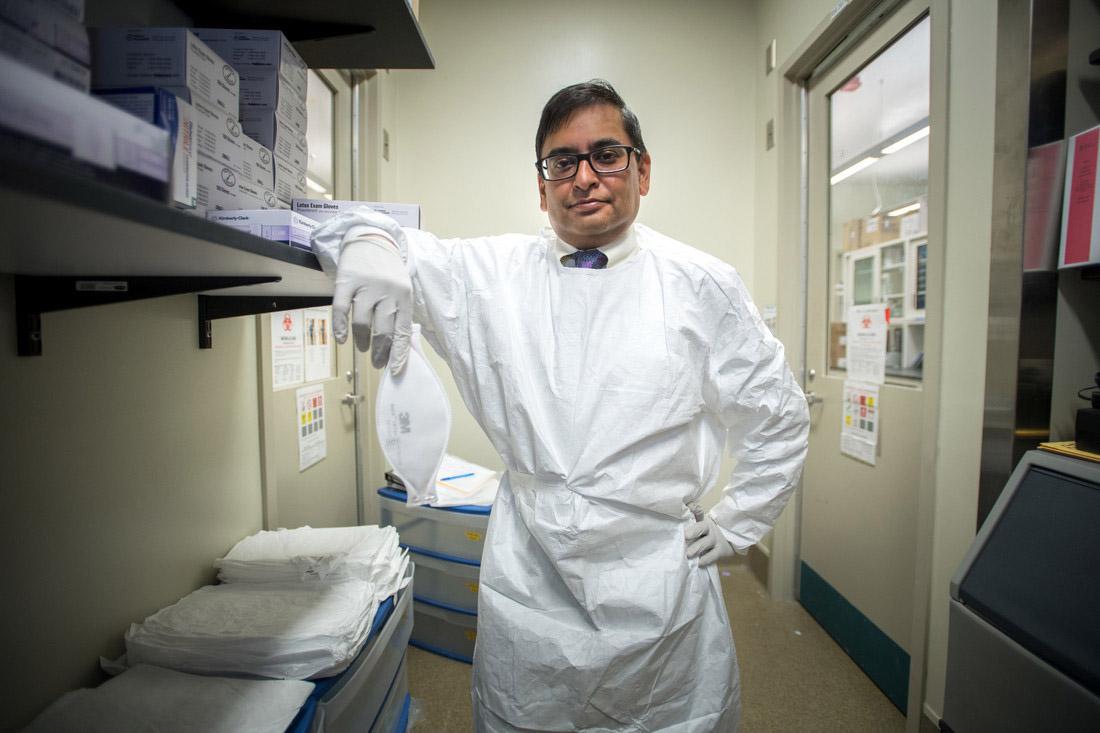Tulane researchers awarded new grant to continue progress on TB vaccine
Researchers at Tulane National Primate Research Center received a new grant totaling more than $4 million over the next five years to continue their work on a vaccine against tuberculosis. The grant from the National Institute of Allergy and Infectious Diseases will fund research led by Deepak Kaushal, director of the Tulane Center for Tuberculosis Research.
Kaushal’s team previously used a modified strain of TB to show that monkeys could generate better protective immunity than when vaccinated with BCG, a common TB vaccine. The Tulane researchers used Mycobacterium tuberculosis (Mtb) — a strain modified to lose a stress response gene called SigmaH. Monkeys that received aerosols of the modified strain resisted infection with Mtb better than the similarly delivered BCG and showed glimpses of protective immune response in their lungs.
The Geneva Consensus for the development of TB vaccines states that any live TB based vaccine must have at least two independent mutations for safety reasons, because dependent or related mutations can more easily revert back to the original virus.
“If successful, this project will provide us with multiple safe TB strains with proven vaccine efficacy in a human-like model of TB.”
Deepak Kaushal, director of the Tulane Center for Tuberculosis Research.
Kaushal’s team will now generate 10 double and triple mutant strains of M tuberculosis, all of which will contain the mutation in SigmaH. The other mutations have been carefully chosen to be genetically independent of SigmaH. Researchers will then test the phenotype of these vaccines for safety in mice and guinea pigs, along with SIV co-infected macaques. Simultaneously, they will test the ability of these strains to actually protect against lethal TB in macaques.
“If successful, this project will provide us with multiple safe TB strains with proven vaccine efficacy in a human-like model of TB,” Kaushal says. “The vaccine against this deadly disease could then be tested in humans.”
Tuberculosis is one of the world’s deadliest diseases, killing more than 1.7 million people in 2016.

